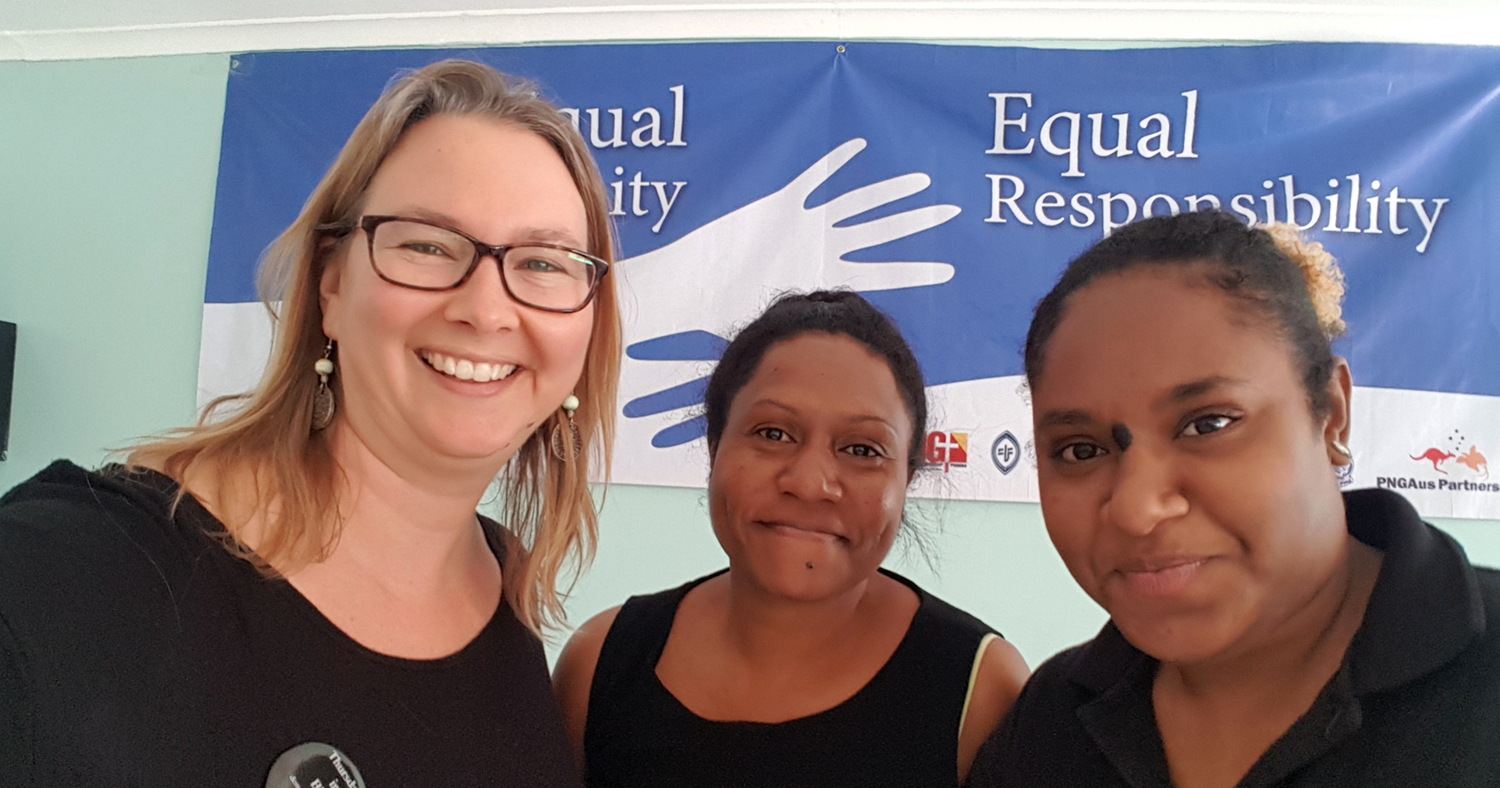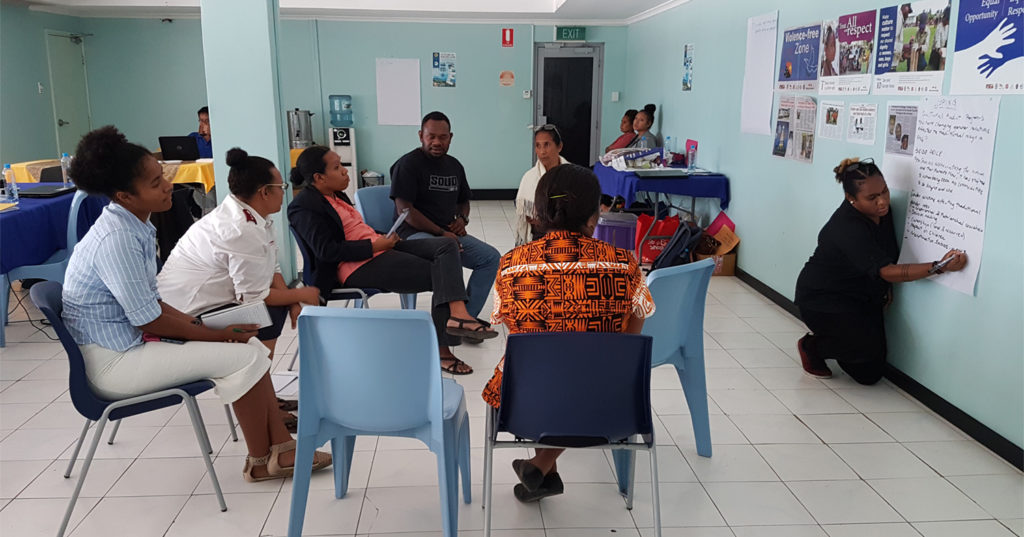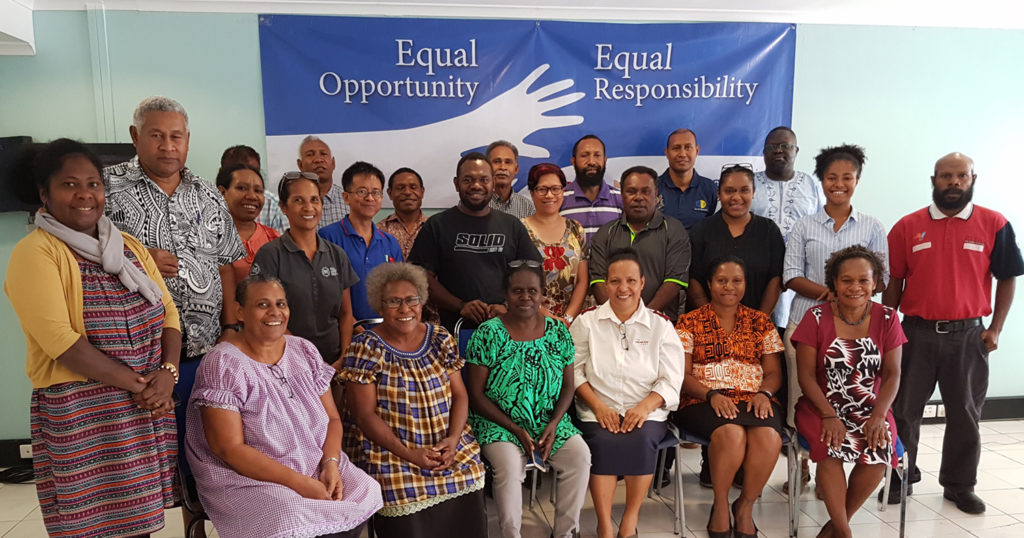
Gender Equality Theology changing hearts and minds in Papua New Guinea
Salote and Jone have been married 11 years, members of a Christian church, and have two beautiful children. They love one another, but throughout their marriage they’ve had times of conflict and Jone has become angry, abusive and resorted to violence. Each time he pleads for forgiveness, vows to change and for a time makes good on his promise. Each time, violence returns. Salote wants to believe that everyone, with the love of God, can change, but she fears for her life and for the welfare of her children. She asks the advice of her Pastor.
This is the scenario a group of men and women are grappling with in a frostily air-conditioned room in the offices of the United Church of Papua New Guinea, Port Moresby, on a typically hot February day. They’ve come from all over the country – the Highlands, New Britain, Goroka – and they represent different denominations, universities and groups united by a common desire to see an end to violence against women. This week, their unexpected secret weapon is better theology.
“Almost everyone in Papua New Guinea is a Christian, which completely underpins the culture,” explains University lecturer Theresa, who has come to be part of the Community of Practice meeting, seeking inspiration for her gender and social studies lectures.
“But most have only a shallow understanding of what the Bible really says about men and women. It’s enough for many men to believe their marriages are ordained by God, or that they are superior to women. In reality, there’s so much more to what the Scriptures say about the equality of men and women. Understanding this properly changes everything.”

Watching the group grapple with what advice a Pastor should give to the couple is an interesting experience. Earlier, a Bible study by Rev Dr Seforosa Carroll has unpacked a passage from Matthew about turning the other cheek – a concept that for decades has been part of the powerful brew holding faithful women captive in abusive marriages. Rev Dr Carroll, however, explains that in the culture of Jesus’ day, rather than passively accepting or inviting further violence, ‘turning the other cheek’ could quite literally have created a radically different dynamic between two people and restored a sense of equality and dignity.
The interpretation opens new possibilities in the room and creates a buzz that spills over into discussion and controversy around the case study. For some, the issue hits close to the heart. Women here have left abusive marriages of their own and are raising children while helping other women find safety from violence. This is no idle hypothetical. What’s certain is that for everyone in the room, this teaching of Jesus – fully explained, beautifully illustrated – has real authority and currency to change lives.

UnitingWorld is continuing to support the development of resources to teach Gender Equality Theology throughout the Pacific. If you’re interested in seeing a copy of the Bible studies or helping provide invaluable financial support for the project, please get in touch. We’d love you to join us on this exciting journey with our partners!

